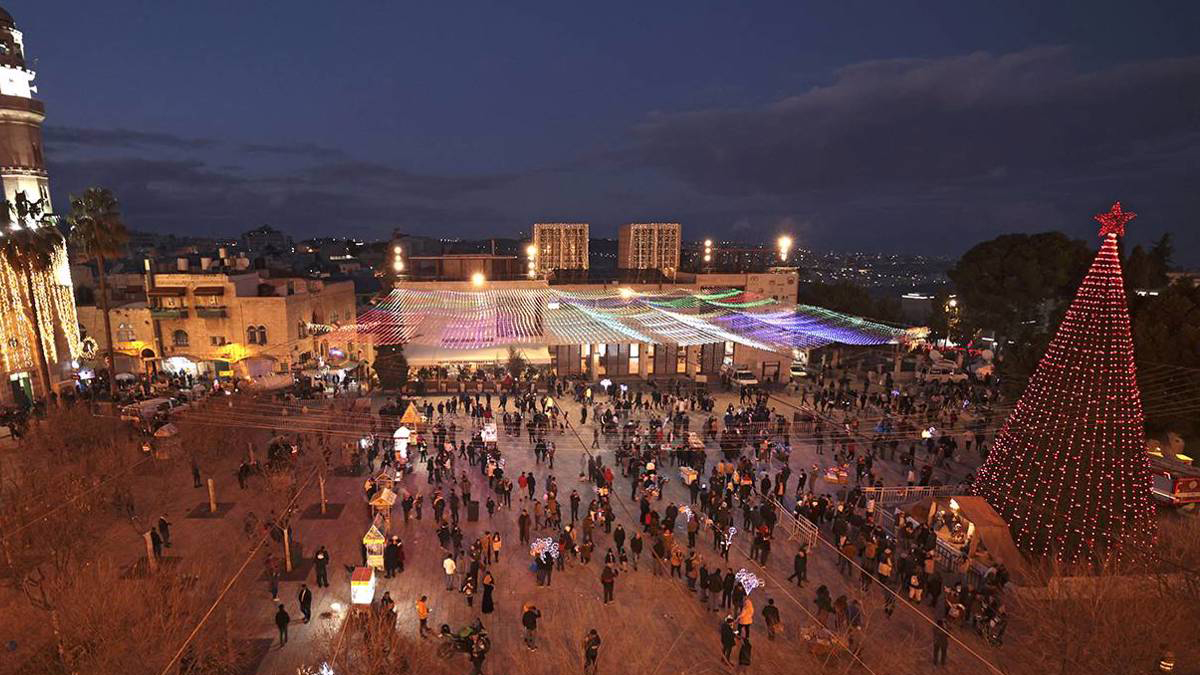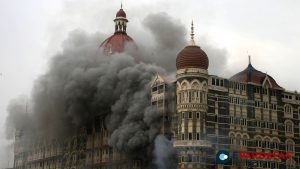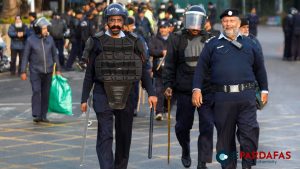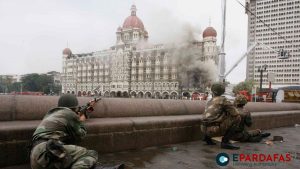
When Will the Peace of Christmas Come Home?

BETHLEHEM – As mayor of the Palestinian city of Bethlehem, I have the privilege of lighting the Christmas tree in Manger Square and attending Midnight Mass at one of the world’s oldest churches, built in the fourth century by the Byzantine Empress Helena. But my most important duty is to help give people faith and encouragement. When I lit the Christmas tree on December 3, I expressed my hope that the light would radiate to the world our desire for peace, and we prayed together that Christmas would fulfill its promise and bring people together.
Bringing people together has two meanings for Palestinians living under occupation. It can mean the togetherness of time shared with friends and relatives. But as the mayor of the city where it all began for Christians 2,000 years ago, I must think of the larger Palestinian family.
The fact that we have been living for decades under occupation means that we cannot enjoy the sense of togetherness that all people want during their great holidays, particularly the religious ones. Our people in Gaza cannot come freely to Bethlehem, and our brothers and sisters in Jordan and other countries cannot easily obtain visas from an occupying power that applies exaggerated entry restrictions. Citizens of other Middle East countries, like Lebanon and Syria, which have no peace agreement with Israel, have no chance at all.
The fact that a Palestinian Christian like me, or a Christian living in a nearby Arab country, cannot simply come to Bethlehem for Christmas should be unacceptable to everyone – as should the eight-meter-high wall that still encircles our city, despite being declared illegal by the International Court of Justice in 2004. This wall is a constant reminder of separation rather than togetherness.
This year marks 150 years since the municipality of Bethlehem was established. Under Palestinian Authority law, a Christian Arab serves as mayor here and in similar Palestinian cities. But the challenge of keeping Christian Arabs in Palestine has become more difficult because of the occupation. While many Palestinians suffer under foreign military rule and wish that they could leave, Palestinian Christians are leaving in larger numbers simply because they have connections with the wider world through churches and the tourism business.
Bethlehem’s population has grown over the years, and so has the number of hotel rooms – something unavailable to Mary and Joseph 2,000 years ago. But the growth of our population and tourist accommodations has been restricted by the wall Israel built on our land, and by the occupiers’ refusal to allow us to pursue normal urban planning, partly because of Israeli settlement activity. These settlements, too, have long been considered illegal by the United Nations Security Council, yet Israel continues to build and confiscate land in violation of international law, which forbids occupiers from benefiting from their military conquests.
Christmas is celebrated three times in Bethlehem, reflecting the rites of the three main churches that have been here for centuries. Catholics and those following the Gregorian calendar hold midnight mass on December 25, while Orthodox Christians, who follow the eastern calendar, begin their Christmas celebrations on January 6. Armenians hold the ritual on January 18. As we do every year, we will observe all the formalities dictated by the Ottoman Status Quo. This centuries-old system of unwritten rules requires a very strict protocol governing where local leaders meet the head of the respective church and who is allowed to accompany the patriarchs and bishops at various entrance points.
Ten years ago, UNESCO declared Bethlehem’s Church of the Nativity to be in danger. After extensive renovation by the Palestinian government, funded by private and official donors, the church’s mosaics and other elements, damaged by a fire centuries ago, were restored. But we Palestinian Christians, who have been living continuously in Bethlehem for 2,000 years, do not want our churches to become museums. We want Christian pilgrims from around the world, including Arab Christians, to come to Bethlehem to visit the living stones. For now, we are blessed that our people still hope and insist on a better tomorrow despite the absence of any serious peace talks.
When we lit the Christmas tree, we prayed that the light from Bethlehem – from the darkness of military occupation – would reach the entire world. Our faith is not in a change of heart by our occupiers, but in the justice of our cause. Two millennia ago, the skies of Bethlehem were lit as angels heralded the birth of Jesus by declaring, “Peace on Earth and goodwill to all.” This Christmas, all of us in his hometown continue to yearn for that true peace.
Hanna Hanania is the mayor of Bethlehem.
Copyright: Project Syndicate, 2022.
www.project-syndicate.org













Comments